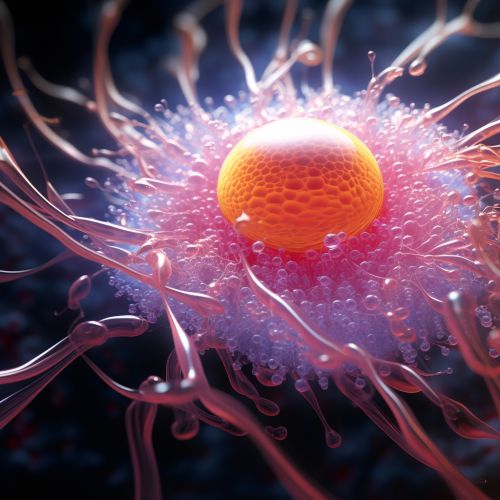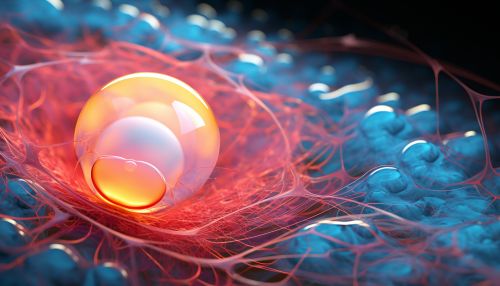Exocytosis
Overview
Exocytosis is a process by which cells transport secretory products out of the cell. This process is essential for the normal functioning of cells and is involved in numerous physiological processes, including neurotransmission, hormone secretion, and immune responses. Exocytosis is a form of active transport, meaning it requires energy in the form of ATP to occur.
Mechanism of Exocytosis
The process of exocytosis involves several steps. First, a vesicle containing the secretory product forms inside the cell. This vesicle then moves towards the cell membrane, where it fuses with the membrane and releases its contents into the extracellular space. This process is facilitated by a variety of proteins, including SNARE proteins, which help to guide the vesicle to the correct location and promote fusion with the cell membrane.


Types of Exocytosis
There are several types of exocytosis, each with its own specific function and mechanism. These include constitutive exocytosis, which is a continuous process that occurs in all cells, and regulated exocytosis, which occurs only in response to specific signals. Other types of exocytosis include compound exocytosis, in which multiple vesicles fuse together before fusing with the cell membrane, and kiss-and-run exocytosis, in which the vesicle only partially fuses with the cell membrane, releasing a portion of its contents before retreating back into the cell.
Role in Physiology
Exocytosis plays a crucial role in many physiological processes. For example, in neurotransmission, neurotransmitters are packaged into vesicles in the neuron's cell body. These vesicles then travel down the axon to the synaptic terminal, where they are released into the synapse via exocytosis. Similarly, in endocrine cells, hormones are packaged into vesicles and released into the bloodstream via exocytosis. In immune cells, exocytosis is used to release cytotoxic granules that kill target cells.
Role in Disease
Abnormalities in exocytosis can lead to a variety of diseases. For example, defects in the exocytosis of insulin-containing vesicles in pancreatic beta cells can lead to diabetes. Similarly, defects in the exocytosis of neurotransmitters can lead to neurological disorders such as Parkinson's and Alzheimer's. Understanding the mechanisms of exocytosis and how they can go awry is therefore crucial for the development of treatments for these and other diseases.
